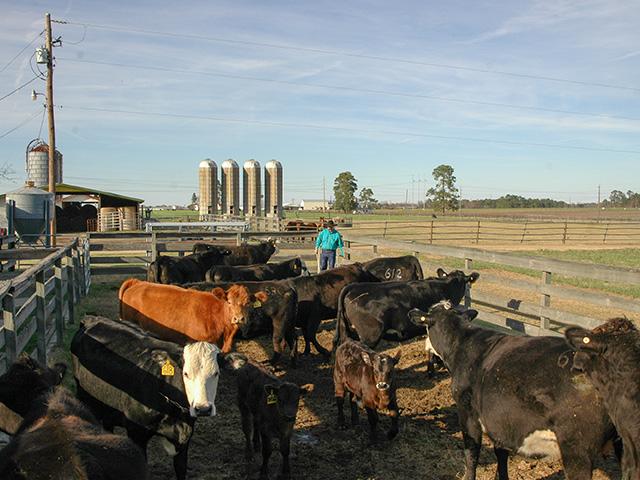Producers Need Vets During Drought
5 Ways Local Veterinarians Can Help Livestock Producers During a Drought
OMAHA (DTN) -- The local veterinarian could become a beef producer's best friend during times of drought.
University of Missouri Extension veterinary toxicologist Tim Evans said in a recent news release that producers should use a trusted vet and establish open communication to aid in making decisions, especially during dry times.
"Although veterinarians always provide service to animal owners, their value to livestock producers becomes increasingly important during drought, high heat and limited forage availability," Evans said.
There are five main ways veterinarians can help during drought, according to University of Missouri Extension:
1. Assist livestock producers in making culling decisions.
2. Advise on water quality issues and feeding alternative forages, especially those that might be toxic to livestock.
3. Diagnose, treat and prevent water- and forage-associated intoxications in live animals.
P[L1] D[0x0] M[300x250] OOP[F] ADUNIT[] T[]
4. Perform postmortem exams on dead animals.
5. Recommend herd health programs, including the use of various feed additives, to keep livestock healthy during a drought.
A good relationship with land-grant university Extension personnel can also help livestock producers. Extension livestock specialists and agronomists can help producers take an integrated approach to decide how to cull cattle to match available feed and water sources, according to the release.
Working with both local veterinarians and Extension specialists can help livestock producers decide how best to make use of their financial and animal health resources, Evans said.
This assistance includes deciding what feedstuffs to buy and/or grow to best meet the current and future nutritional needs for cattle in different stages of development. These types of consultations are especially important to prevent nitrate/nitrite poisoning in ruminants, he said.
Weather changes can often affect water quality in ponds. Harmful blue-green algal blooms in drought-affected ponds can produce toxins which affect livestock.
"Do not let your livestock drink from 'scummy' ponds," Evans said.
Veterinarians can inspect suspected ponds and take appropriate samples to help determine if the pond water is safe for livestock to drink.
With the drought affecting pastures, weeds might be the only plants to survive and thrive. Evans said animals usually avoid eating many weeds, especially if better forages are available.
During drought, however, livestock will eat what they can find and are more likely to eat toxic weeds in baled or ensiled forages used as alternative drought feedstuffs.
Evans said that if there's a sudden livestock death, producers should consult their veterinarians and ask for a necropsy exam.
It's the only way for producers to know for sure how to protect their investment from future risk, he said.
Russ Quinn can be reached at Russ.Quinn@dtn.com
Follow him on X, formerly known as Twitter, @RussQuinnDTN
(c) Copyright 2023 DTN, LLC. All rights reserved.






